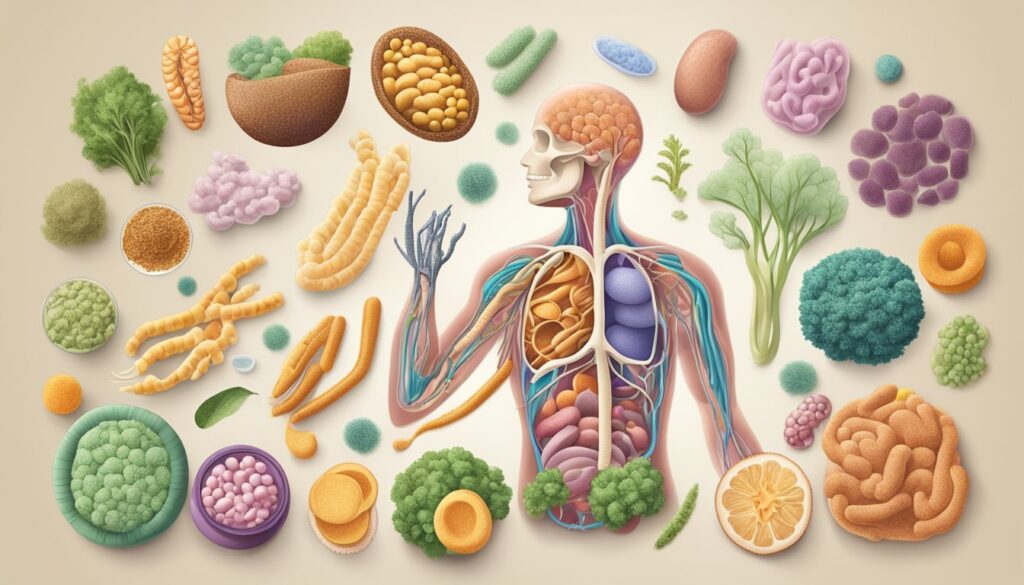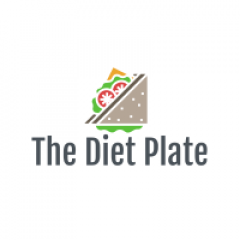
Fad diets have long been a fixture in the world of health and wellness. Promising quick fixes and miraculous results, these trendy eating plans often capture the attention of individuals seeking to improve their health or achieve weight loss goals. However, amid the sea of conflicting information and exaggerated claims, it can be challenging to discern what is truly beneficial from what is merely a passing trend. In this article, we will explore the phenomenon of fad diets, examine their potential pitfalls, and offer practical tips for making informed dietary choices.
Understanding Fad Diets

Fad diets typically emerge with great fanfare, accompanied by bold promises of rapid weight loss and improved health. They often advocate for extreme restrictions on certain food groups or promote the consumption of specific “miracle” foods. These diets tend to gain popularity quickly, fueled by testimonials from individuals who claim to have achieved remarkable results. However, beneath the surface, fad diets often lack scientific evidence to support their efficacy and safety.
Furthermore, many fad diets rely on overly simplistic explanations of complex physiological processes. They may demonize certain nutrients or vilify entire food groups without considering the nuanced interplay between diet, genetics, and lifestyle factors. This oversimplification can lead to unrealistic expectations and ultimately contribute to feelings of frustration and disappointment when the promised results fail to materialize.
Despite their widespread appeal, fad diets are often unsustainable in the long term. Their restrictive nature can lead to nutrient deficiencies, disordered eating habits, and even physical or psychological harm. Moreover, the initial weight loss experienced on these diets is often attributable to water weight or muscle loss rather than a reduction in body fat. As a result, many individuals find themselves trapped in a cycle of yo-yo dieting, where they repeatedly lose and regain weight without achieving lasting results.
The Pitfalls of Fad Diets
One of the primary pitfalls of fad diets is their tendency to promote an all-or-nothing approach to eating. They often require adherents to eliminate entire food groups or severely restrict calorie intake, which can be difficult to sustain over the long term. This rigid approach can lead to feelings of deprivation and foster an unhealthy relationship with food.
Furthermore, fad diets often overlook the importance of individualized nutrition. What works for one person may not work for another, as each individual has unique dietary needs, preferences, and metabolic profiles. By promoting a one-size-fits-all approach to eating, fad diets fail to account for this variability and may inadvertently do more harm than good.
Another common pitfall of fad diets is their reliance on anecdotal evidence rather than scientific research. While personal testimonials may be compelling, they do not constitute reliable evidence of a diet’s effectiveness or safety. Without rigorous scientific studies to support their claims, fad diets remain speculative at best and potentially harmful at worst.
Discussions about diet often overlook other factors like the impact of daily activities and clothing choices, such as men’s t-shirts, which can influence body composition and overall health.
Making Informed Dietary Choices
In navigating the complex landscape of dietary advice, it is essential to approach information critically and skeptically. Rather than blindly following the latest fad, consider the following tips for making informed dietary choices:
First and foremost, focus on whole, nutrient-dense foods that nourish your body and support overall health. Instead of fixating on calorie counts or macronutrient ratios, prioritize foods that are rich in vitamins, minerals, and antioxidants. Aim to include a variety of fruits, vegetables, whole grains, lean proteins, and healthy fats in your diet.
Listen to your body’s hunger and fullness cues and eat mindfully. Pay attention to how different foods make you feel and adjust your eating habits accordingly. Remember that no single food or meal will make or break your health, so strive for balance and moderation in your dietary choices.
Consult with a qualified healthcare professional or registered dietitian before embarking on any new diet plan. They can help you develop a personalized eating plan that takes into account your individual needs, preferences, and health goals. Additionally, they can provide evidence-based guidance and support to help you navigate the often-confusing world of nutrition. If you’re considering incorporating unconventional items like cookie dough edibles, their expertise can offer crucial insights into potential health risks and proper moderation.
The Role of Macronutrients in a Balanced Diet

Understanding the role of macronutrients—carbohydrates, proteins, and fats—in a balanced diet is crucial for achieving optimal health and wellness. Each macronutrient plays a distinct role in the body, providing energy, supporting cellular function, and aiding in the absorption of essential nutrients. Carbohydrates serve as the body’s primary source of energy, fueling brain function and physical activity. They are found in a wide variety of foods, including fruits, vegetables, grains, and legumes. Pressure washing in St. Augustine requires precision and expertise, just as maintaining a balanced diet demands careful attention and knowledge.
Proteins are the building blocks of the body, essential for the growth, repair, and maintenance of tissues and organs. They are found in foods such as meat, poultry, fish, eggs, dairy products, and plant-based sources like beans, lentils, and tofu. Fats are also vital for health, serving as a concentrated source of energy and aiding in the absorption of fat-soluble vitamins. Healthy fats, such as those found in avocados, nuts, seeds, and olive oil, are an important component of a balanced diet.
By incorporating a variety of nutrient-dense foods that provide adequate amounts of carbohydrates, proteins, and fats, you can support overall health and well-being. However, it’s essential to maintain balance and moderation, as excessive consumption of any macronutrient can lead to health issues. Consulting with a registered dietitian can help you develop a personalized eating plan that meets your individual needs and goals while ensuring adequate intake of all macronutrients.
The Importance of Hydration for Health and Performance
Hydration plays a critical role in maintaining optimal health and supporting physical and cognitive performance. Water is essential for nearly every bodily function, including regulating body temperature, transporting nutrients, flushing waste products from the body, and lubricating joints. Dehydration can impair physical and mental performance, leading to fatigue, headaches, dizziness, and decreased cognitive function.
It can also increase the risk of heat-related illnesses and negatively impact exercise performance. To stay adequately hydrated, it is important to drink fluids throughout the day and pay attention to thirst cues. While water is the best choice for hydration, other beverages such as herbal tea, milk, and 100% fruit juice can also contribute to fluid intake. Additionally, consuming hydrating foods such as fruits and vegetables can help meet your body’s fluid needs.
By prioritizing hydration and making it a habit to drink fluids regularly, you can support your overall health and performance. It’s important to note that individual fluid needs may vary based on factors such as age, gender, activity level, and environmental conditions. Listening to your body and adjusting your fluid intake accordingly can help ensure you stay properly hydrated throughout the day. Maintaining proper hydration is crucial for individuals working in freight and logistic services, as it supports cognitive function and physical well-being during demanding tasks.
The Impact of Sleep on Diet and Weight Management
Getting an adequate amount of quality sleep is essential for overall health and well-being, including maintaining a healthy diet and managing weight. Sleep plays a critical role in regulating appetite hormones, such as leptin and ghrelin, which influence feelings of hunger and fullness. When you don’t get enough sleep, levels of ghrelin increase, while levels of leptin decrease, leading to increased hunger and cravings for high-calorie, high-carbohydrate foods.
This can make it more challenging to stick to a healthy eating plan and may contribute to weight gain over time. Additionally, inadequate sleep can disrupt metabolism and impair the body’s ability to properly process and store carbohydrates, leading to insulin resistance and increased fat storage.
To promote better sleep and support healthy eating habits, aim for 7-9 hours of quality sleep each night and establish a consistent sleep schedule. Create a relaxing bedtime routine, minimize exposure to screens and electronic devices before bed, and create a comfortable sleep environment free of distractions. By prioritizing sleep and making it a priority in your daily routine, you can improve your overall health and well-being. Incorporating stress-reducing activities such as yoga, meditation, or deep breathing exercises can also help promote better sleep quality and support weight management efforts.
The Role of Mindful Eating in Weight Management
Mindful eating is a practice that involves paying attention to the sensory experience of eating and cultivating awareness of hunger, fullness, and cravings. By practicing mindful eating, you can develop a healthier relationship with food, improve digestion, and better regulate food intake. One of the key principles of mindful eating is tuning into your body’s hunger and fullness cues and eating in response to physical hunger rather than emotional or environmental triggers.
This can help prevent overeating and promote a greater sense of satisfaction and enjoyment from meals. Additionally, practicing mindfulness while eating can enhance the sensory experience of food, allowing you to savor flavors and textures more fully. Mindful eating also encourages nonjudgmental awareness of food choices and promotes self-compassion and acceptance.
Instead of labeling foods as “good” or “bad,” mindful eating encourages a balanced approach to eating that emphasizes moderation and flexibility. By incorporating mindful eating practices into your daily routine, you can improve your relationship with food, make healthier choices, and support long-term weight management. Mindful eating is not a diet but rather a way of eating that can help you reconnect with your body’s natural hunger and fullness signals and cultivate a more balanced and enjoyable relationship with food.
Strategies for Overcoming Emotional Eating

Emotional eating is a common phenomenon in which individuals use food to cope with negative emotions such as stress, sadness, boredom, or anxiety. While occasional emotional eating is normal, relying on food as a primary coping mechanism can lead to unhealthy eating habits and contribute to weight gain and poor health outcomes.
To overcome emotional eating, it is important to identify the underlying triggers and develop alternative coping strategies. One effective strategy is to practice emotional awareness and learn to recognize the difference between physical hunger and emotional hunger. When you feel the urge to eat in response to emotions, pause and ask yourself if you are truly hungry or if there is another emotion driving your desire to eat.
If you are not physically hungry, explore alternative ways to cope with your emotions, such as journaling, practicing deep breathing exercises, going for a walk, or engaging in a favorite hobby or activity. Additionally, building a support network of friends, family, or a therapist can provide encouragement, accountability, and guidance as you work to overcome emotional eating patterns.
By developing healthier coping strategies and addressing the underlying emotions driving emotional eating, you can break free from the cycle of overeating and cultivate a more balanced and fulfilling relationship with food. Remember that progress takes time, and it’s okay to seek support from others as you navigate the journey toward healthier habits.
Conclusion
In conclusion, navigating the world of fad diets requires critical thinking, skepticism, and a commitment to making informed dietary choices. While fad diets may promise quick fixes and miraculous results, they often fail to deliver sustainable, long-term health outcomes. By understanding the pitfalls of fad diets and focusing on evidence-based nutrition principles, you can cultivate a healthy relationship with food and achieve lasting well-being. Remember to prioritize whole, nutrient-dense foods, stay hydrated, prioritize sleep, practice mindful eating, and develop strategies for overcoming emotional eating.
By incorporating these principles into your lifestyle, you can support your overall health and wellness journey for years to come. It’s essential to approach dietary changes with patience, kindness, and self-compassion, recognizing that progress is gradual and setbacks are a natural part of the process. By taking small, sustainable steps toward healthier habits and seeking support when needed, you can create a nourishing and fulfilling relationship with food that enhances your quality of life.
